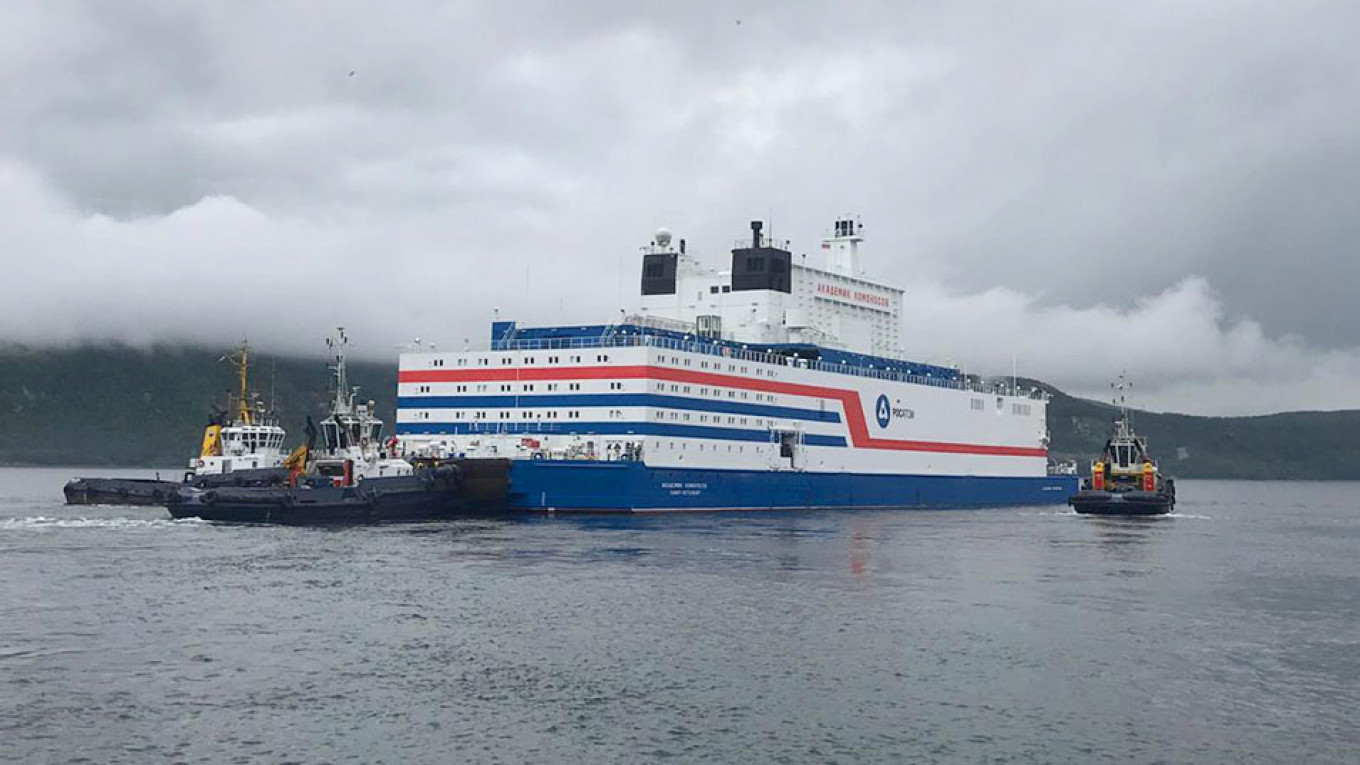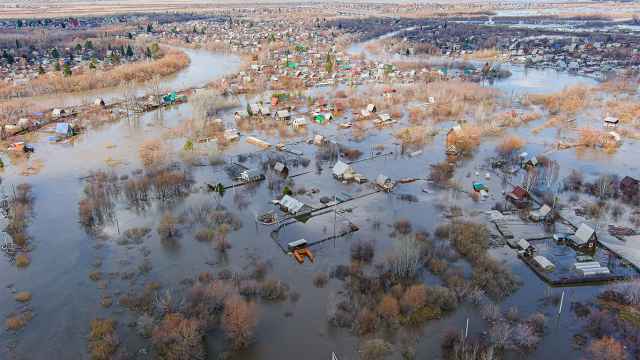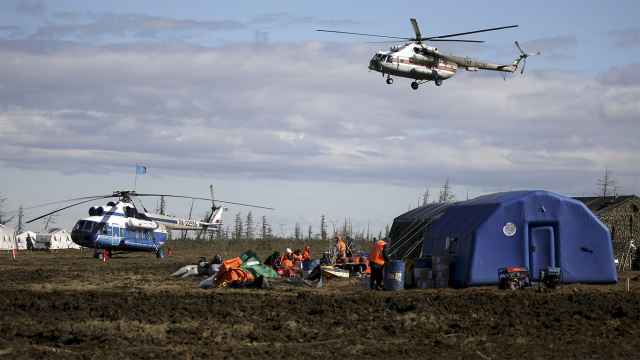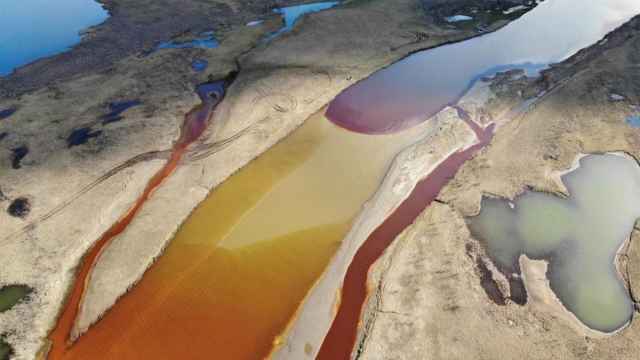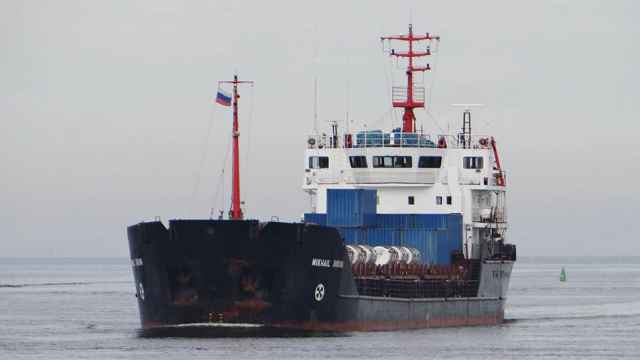The Akademik Lomonosov power barge on Sept. 6 passed the Sannikov Strait south of the New Siberian Islands and made it into the East Siberian Sea. The floating installation now has only about three days left of its extensive voyage across the Northern Sea Route.
According to the Northern Sea Route administration, the installation and its accompanying vessels are due to arrive in the Arctic port Pevek on Sept. 9.
The Akademik Lomonosov set out of the Kola Bay on Aug. 23 after more than a year of preparations in Murmansk. Towed by icebreaker Dikson and accompanied by support ships Yasnyy and Kapitan Martyshkin, the floating power plant had a course to the Barents Sea and subsequently made it through the Kara and Laptev seas.
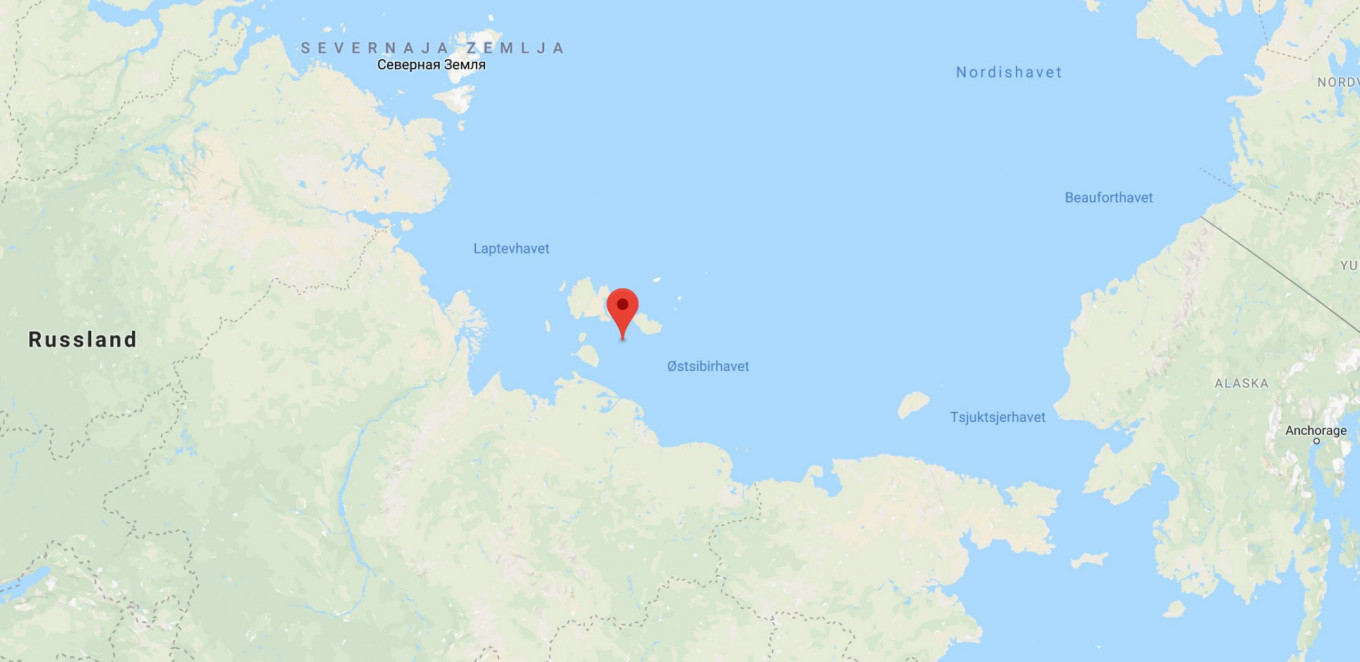
The voyage from Murmansk to Pevek is about 4,700 kilometers long.
Is Pevek ready?
The formerly desolate town with a population of about 4,200 has been under preparations for years. There have been numerous visits by federal officials and inspectors.
Among the last official visits to Pevek, there was a visit made by the minister of Emergency Situations Yevgeny Zinichev who arrived with a group of federal officials on Sept. 5. Zinichev had a special interest in the local coastal infrastructure, the ministry reported.
"It is expected that the floating station Akademik Lomonosov will arrive in Chukotka by the middle of September and it is, therefore, necessary to look at the coastal infrastructure in advance," the minister said.
According to the ministry, a special fire and rescue department is under construction on site. When completed, the unit can ultimately serve as a base for a larger Arctic rescue center.
Onsite there is also a big number of representatives of the nuclear power company Rosatom, the ones who run the plant.
Local authorities previously said that they need to build 320 new apartments and that a major facelift of local infrastructure is in the making. Two architecture companies in 2016 came to town and started working on sketches for a new and upgraded port zone, a new church, as well as bicycle roads, squares, parks and playing areas for kids.
Outsourced security
Law enforcement authorities are also on site preparing to keep an eye on the new strategic object. Rosgvardia, the Russian National Guard, has been commissioned to protect the power plant and its surroundings.
According to the security service, the formation of guarding units was about to be completed in late August and training was ongoing in cooperation with representatives of Rosatom.
Rosgvardia has decided to outsource the protection of the Akademik Lomonosov to what it calls "sub-units of non-governmental security."
The decision to outsource the job has been taken by Rosgvardia Director Viktor Zolotov, the security service said.
Big risks
The Akademik Lomonosov has two KLT40S reactors and will provide heat and electricity to Pevek for the next 12 years. After that, it will have to be towed back either to Rosatomflot’s base in Murmansk or to a shipyard like in Severodvinsk for unloading the spent nuclear fuel and carry out other maintenance work.
Environmentalists have criticized the project and warned against possible major risks.
Greenpeace has described the project as a “nuclear Titanic” or a “Chernobyl on ice.”
"We are sure it has been built not to cover the needs of Chukotka, but as a working model for possible foreign customers," says Rashid Alimov, a nuclear campaigner with Greenpeace in Moscow.
"We think floating nuclear plants is simply a too risky and too expensive way of producing electricity."
A Message from The Moscow Times:
Dear readers,
We are facing unprecedented challenges. Russia's Prosecutor General's Office has designated The Moscow Times as an "undesirable" organization, criminalizing our work and putting our staff at risk of prosecution. This follows our earlier unjust labeling as a "foreign agent."
These actions are direct attempts to silence independent journalism in Russia. The authorities claim our work "discredits the decisions of the Russian leadership." We see things differently: we strive to provide accurate, unbiased reporting on Russia.
We, the journalists of The Moscow Times, refuse to be silenced. But to continue our work, we need your help.
Your support, no matter how small, makes a world of difference. If you can, please support us monthly starting from just $2. It's quick to set up, and every contribution makes a significant impact.
By supporting The Moscow Times, you're defending open, independent journalism in the face of repression. Thank you for standing with us.
Remind me later.


